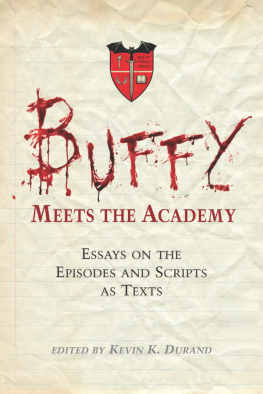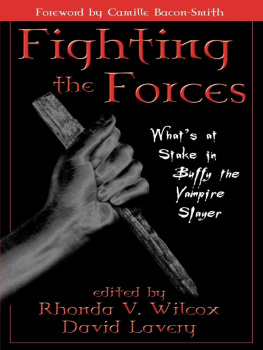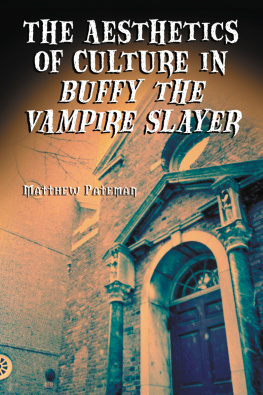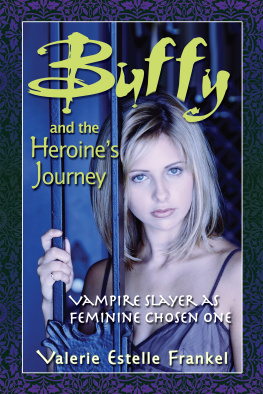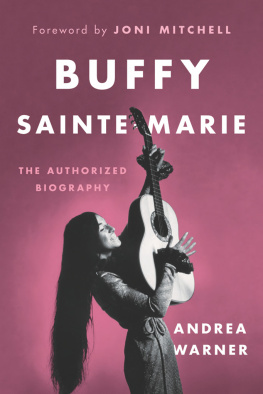
Table of Contents
LIBRARY OF CONGRESS CATALOGUING-IN-PUBLICATION DATA
Buffy meets the academy : essays on the episodes and scripts as text / edited by Kevin K. Durand.
p. cm.
Includes bibliographical references and index.
ISBN 978-0-7864-4355-0
1. Buffy the Vampire Slayer (Television program)
I. Durand, Kevin K., 1967
PN1992.77.B84B825 2009
791.45'72dc22 2009018617
British Library cataloguing data are available
2009 Kevin K. Durand. All rights reserved
No part of this book may be reproduced or transmitted in any form or by any means, electronic or mechanical, including photocopying or recording, or by any information storage and retrieval system, without permission in writing from the publisher.
Front cover by TG Design
McFarland & Company, Inc., Publishers
Box 611, Jefferson, North Carolina 28640
www.mcfarlandpub.com
Introduction
Pop Culture Meets the Academy
KEVIN K. DURAND
Id call that a radical interpretation of the text
Oz in Doppelgangland
Since those fateful moments when Plato expelled the poets from the ideal city and criticized the Siskels, Eberts, and Roepers of his day as know-nothing charlatans, the stage has been set for the dramatic tension between critic and artist/author, between critical theory and literature, and between theorist and theorist. Plato began the discipline that has come to be known as Literary Criticism in the context of pondering such questions of moment as Truth, Knowledge, and Virtue. While he could not have anticipated Foucault, Adorno, Lacan, Kristeva, or hooks, all literary critics owe the founding of our art to Plato.
As Plato could scarcely have anticipated the works of his descendents, one suspects he would have been even more startled to see some of the descendents of Homer. How, for example, might Plato have reacted to Buffy or Angel? Would he have found them to be interesting trifles? Radical storytelling? Something to follow the poets out of the ideal society? Whatever his reaction to them as works of art and entertainment, one thing is clearhe would have taken them seriously. Whether Homer or Buffy, Aristophanes or Angel, the works of popular culture are works to be engaged.
Bemused looks, skepticism, and, at times, outright laughter were, and oftentimes are, the reactions to the scholar who announces that he studies Buffy, The Simpsons, The Sopranos, or M*A*S*H. Why dont you study something important? Or, in a bit of stuffy dismissiveness, I dont watch television. To the latter minor critic, I offer David Bianculis response at the 2004 Slayage Conference, So, you choose to be illiterate?!? It is indeed the case that much of that which is on television is mindless drivel. Let us imagine that no more than ten percent is worthwhile. Given that each year sees the publication of tens of thousands of books, precious few of which have a fraction of the import of direct to cable movies of the week, perhaps ten percent is not so bad.
The response to the former dismissal develops somewhat from the response to the latter. As a matter of importance and meaning, there is no question that popular culture vehicles are among the most effective for exploring topics of critical importance. Maude gave us one of the most gripping discussions of issues and arguments surrounding abortion. M*A*S*H transformed postVietnam malaise into fodder for comedy while putting forward some of the most powerful and poignant views of war and its cost. Archie Bunker brought questions of race and racism into the homes of millions and was quietly and comedically subversive of the separate but equal and not in my backyard mind-set that endured in good health well into the 1970s and 80s despite Brown v. Board of Education twenty years previously. Television lampoons, critiques, subverts, and, at times, undergirds our deepest cultural concerns, questions, and commitments. In the process, like its ancestor, the Lysistrata of twenty-five centuries prior, television shows can provide a thoughtful place for reflection, a kind of jumping off spot for philosophical investigation, and even fairly sophisticate views to be added to the intellectual structure of our conversations.
Having argued for taking popular culture seriously, it is of some importance to examine why, even among those sympathetic to the foregoing argument, popular culture studies tend to languish. I shall argue that the primary reason for this is the shape of popular culture studies itself.
There is no universally accepted approach to popular culture studies. In itself, this is not problematic. There is no universally accepted approach to Socratic studies either. However, when one engages Plato or St. Thomas or William Faulkner, there is a seriousness or gravitas that pervades the analysis. (And, let us not forget Faulkners own foray into the world of Hollywood, screenwriting, and moving pictures.) Scholars engage the text under examination in a deliberative fashion whatever critical framework is being employed by the scholar. This is, unfortunately, not the case in popular culture studies. However, to say that such seriousness is not universally present is not to say that it is wholly absent. Indeed, there are very thorough and deliberate scholars and some outstanding scholarship in the field. Too often, they are drowned out by fluff.
As I survey the field of popular culture studies, the various conversations tend to fall into five general sorts: Critical Engagement, Theory Exemplar/Corrective, Point of Departure, Cultural Solipsism, and Isnt that neat? Taking these in reverse order, let us begin with the last.
Imagine this scene. Four or five friends gather for a night of television. Rather than succumbing to the weak ninety percent, they opt for Buffy. Let us also imagine that the group is fairly well-read, well-versed in critical theory, and quite well-informed with regard to the history of television and movies. As one episode moves into another, dinner and popcorn and drinks are consumed, and the hour grows late, the friends begin to note allusions to other works, homages to great television of the past, and/or false cognates of the same that just seem interesting. Before long, the gathering and viewing becomes a self-congratulatory exercise in the self-referential pointing out of neat connections or clever turns of phrase or interesting references. The result is something more than a drinking game but something somewhat less than scholarship.
At times, popular culture studies seems little more than Isnt that neat? At those times, when it does seem a little more, it can appear as little more than Cultural Solipsism. One of the easiest papers to write is the one that traces elements of some show or other to other shows that it references. Then, one takes those references and traces them to still others. In some rare cases, the trace comes full circle to the original program under consideration. One could fairly easily take, for example, Ray Stevenss Dudley Dooright, trace the characters to earlier Stevens songs (e.g., The Mississippi Squirrel Revival, The Streak, and The Haircut Song). If one were particularly energetic, one could perhaps trace the influence of Jerry Clower, Grady Nutt, Grandpa Jones, and Minnie Pearl on Stevens. And, as it happens, there are elements of Ray Stevenss early material that influence the later work of these other luminaries. So, with little trouble, a Six Degrees of Ray Stevens could well be pulled together. While a good bit of fun, perhaps, such work would hardly be considered either original or particularly worthwhile. It is this sort of Cultural Solipsism that often makes popular culture studies seem less than serious and somewhat less than scholarly.
Next page
